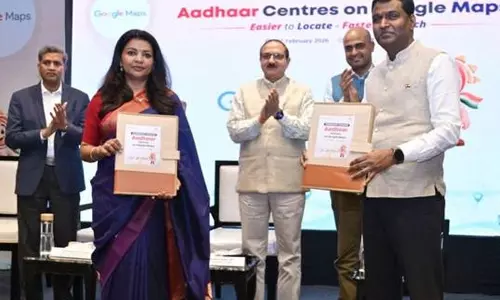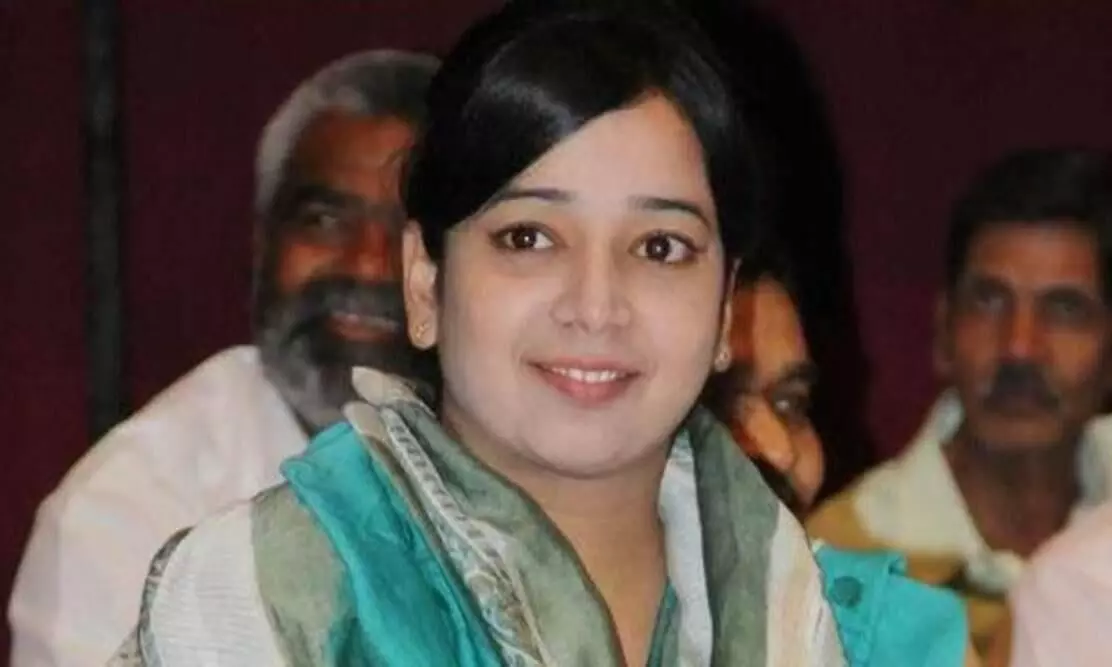
Delhi HC agreed to hear plea challenging Ishrat Jahan's bail
text_fieldsFormer Delhi Congress councillor Ishrat Jahan
New Delhi: The Delhi High Court agreed to hear the Delhi Police's plea challenging bail granted to former Congress councillor Ishrat Jahan in the case of alleged larger conspiracy behind the February 2020 riots in the national capital. The court posted the hearing on July 27, PTI reported.
A bench of justices Siddharth Mridul and Rajnish Bhatnagar also posted the hearing on bail plea of Umar Khalid, co-accused in the case, on July 27.
Ishrat Jahan and some others were booked under the Unlawful Activities (Prevention) Act (UAPA) for alleged conspiracy to stage the February 2020 riots, and Jahan was named as one of the "masterminds". The deadly riots, which had taken 53 people's lives and injured more than 700, erupted along with the severe protests against the Citizenship (Amendment) Act (CAA), 2019, and the National Register of Citizens (NRC). Though the protests were pan-India, the national capital region witnessed the large of it.
The Delhi Police have contended in the court that the trial our granting bail to Ishrat Jahan was perverse, against the law and failed to take into account the gravity of the offence. The trial court "lost sight of the fact that several people had lost their lives in these riots", which "disturbed the even tempo of life" and were "prejudicial to the public order". "Apart from undermining national security, their effect was not confined to a few individuals, but impacted a wide spectrum of public," Delhi Police's appeal said.
"The trial court lost sight of the fact that the respondent being 'closely connected' with the other conspirators, played a very active role in the entire conspiracy of organising the so-called protest at the protest site, which resulted in riots, killing numerous people, besides injuries and destruction of property," it said.
It claimed that the "disruptive chakka-jam (road blockade)" made by the accused was a terrorist act and that "general disenchantment was sought to be created, affecting the security of the state".
Arguing that the freedom of speech and expression does not include incitement of violence or staging violent protests, the plea said, "A communally surcharged environment was deliberately created by the conspirators, sharply dividing the religious communities, hardening cleavages and eliminating any possibility of consensus, apart from disavowing all belief in the efficacy and worth of the existing system and portraying the political establishment inimical to a religious community,"
The appeal said, "It is submitted that having roused sentiments and created a sense of insecurity, the likelihood that any act or disorder would have the potential of tumultuous consequences could not only be foreseen, but it is apparent that the conspirators desired these consequences, their conduct being clearly resolved to bring about that result having shaped their behaviour to achieve this end.
"The intent to disrupt the feeling of unity and strike terror is clearly obvious. In any event, the likelihood of this could not but be known," it said.
On March 14, Additional Sessions Judge Amitabh Rawat had said Jahan's role in the case, on a prima facie consideration, persuaded the court to grant her the relief of bail in spite of the embargoes contained in the law.
The trial court had stated that according to the charge sheet or the statements of the witnesses, Jahan was neither the one who "created the idea of chakka-jam" nor was she a member of any of the incriminating WhatsApp groups or organisations.
It had said the accused was involved at the protest site at Khureji, which was not located in the area where the riots took place and were neither physically present in northeast Delhi for rioting nor had her name cropped up in the flurry of calls or the CCTV footage or in any conspiratorial meetings.
Besides Jahan and Khalid, activist Khalid Saifi, JNU students Natasha Narwal and Devangana Kalita, Jamia Coordination Committee member Safoora Zargar, former Aam Aadmi Party (AAP) councillor Tahir Hussain and several others have been booked under the stringent UAPA in the case.






















